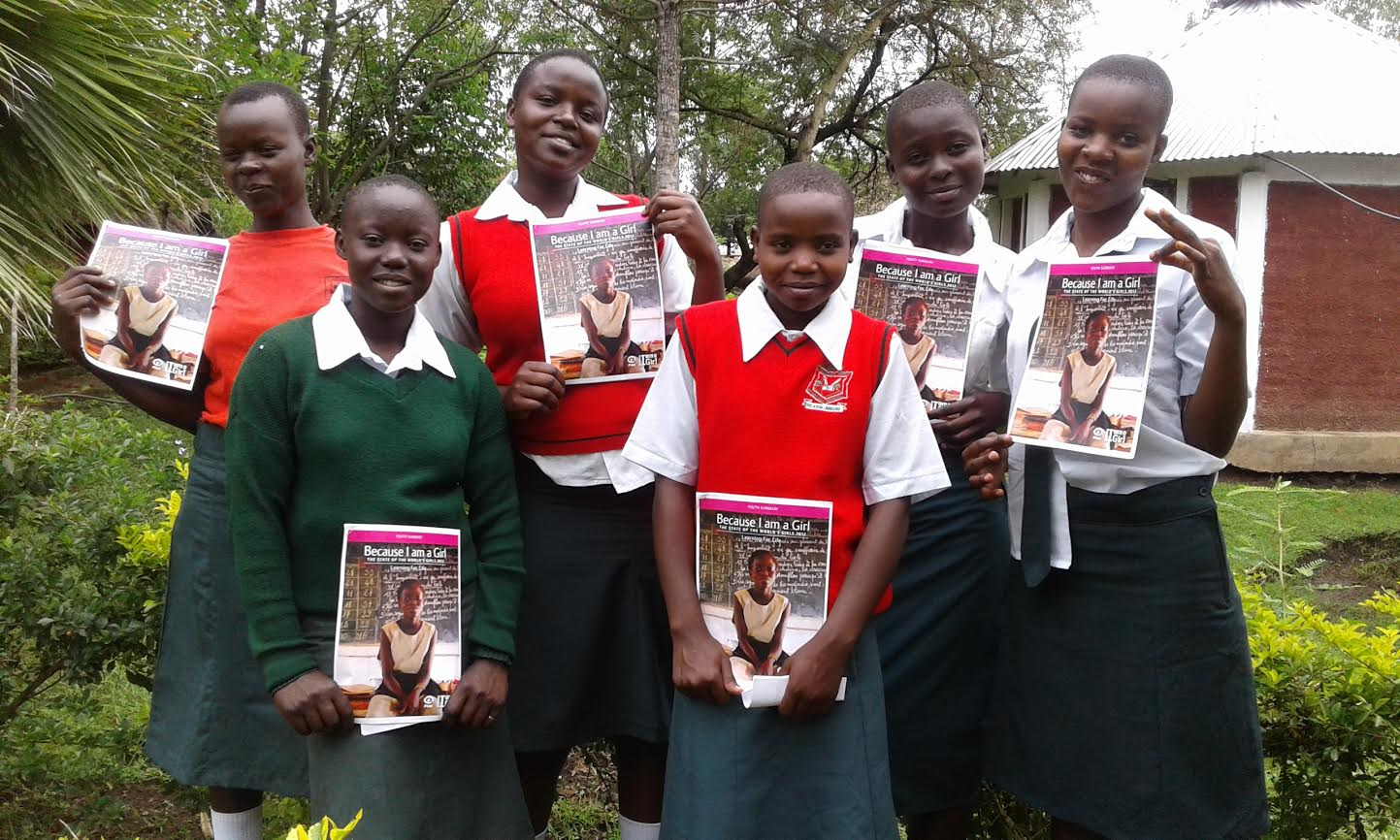Blog
Who runs the world?

At Team Kenya, our vision is for every girl in Kenya to have an equal chance to achieve her potential and be free from poverty. We believe that that starts with education, the education that 66 million girls right across the world are being denied today.
But of course, this vision comes with its own challenges. One of the big questions we are asked most often is this: why girls? Why are you favouring them over boys? What right do girls have to your funds over boys? This is understandable, given that we all want equal opportunities for the boys and girls in our societies. But dig a little deeper and we see that the issue of equality is far more problematic than it initially appears.
Actress Emma Watson, in her capacity as Goodwill Ambassador for UN Women, launched the #HeForShe solidarity campaign in September 2014. The aim of this campaign was to reach and engage one million men and boys by July 2015, stating their support for equal opportunities for girls and women via signature. It should have been easy in the age of social media and television and with a global celebrity the driving force behind it. But it wasn’t easy, and #HeForShe failed to meet its target.
This speaks volumes about the lack of passion and commitment worldwide about the journey towards true gender equality.
In Kenya, particularly in rural areas like Ndhiwa, traditional customs and practices put girls and women at an even bigger disadvantage than some other parts of the world. For example, if a family can afford to send only one of their two children to secondary school, they will choose to send the boy. With families often in desperate poverty, girls are often sold off for early marriage in exchange for a dowry, and are likely to become pregnant before they are emotionally or physically ready for motherhood. Without an education, these new mothers are left unable to work outside of the home, and are ultimately less likely to value the education of their own children — the cycle of poverty becomes impossible to break.
Now, picture the following scenario: Team Kenya gives the same family the financial support to allow both the son and daughter to attend secondary school. Both children are not only educated and offered the chance to complete their studies to the best of their academic ability, but, because of our direct involvement with our partner schools, we can ensure that both children are educated about the dangers of gender based violence (GBV), the risks involved with HIV and AIDS, and other issues that have plagued communities like Ndhiwa for so long. They leave education with high self-esteem, a strong skill set for whatever career path they choose, and well-informed about the life choices they, and the females in their family, are entitled to.
Here’s the thing: by educating girls, we are enabling the entire community — men and boys included — to lift itself out of poverty. It’s not a question of favouring; it’s about opening up opportunities that weren’t there before. It’s about ensuring that those same opportunities are intergenerational. It’s about a boy being born into a world where a girl has the exact same life chances as him, so that both males and females can reap the benefits of an equal society. As the African proverb goes: “Educate a boy, and you educate an individual. Educate a girl, and you educate a community.”
Canadian Prime Minister Justin Trudeau has in recent months been one of the most recognisable political advocates for gender equality. When he appointed his cabinet last November with 15 men and 15 women and was asked why, he replied simply: “because it’s 2015”. At Team Kenya, we believe that the work we do with the Ndhiwa population, however small that population is, is part of a bigger picture — one which helps us all look forward to the Canadian cabinet being representative of the whole world.
Written by Helen Essex, Copywriting and Marketing Volunteer